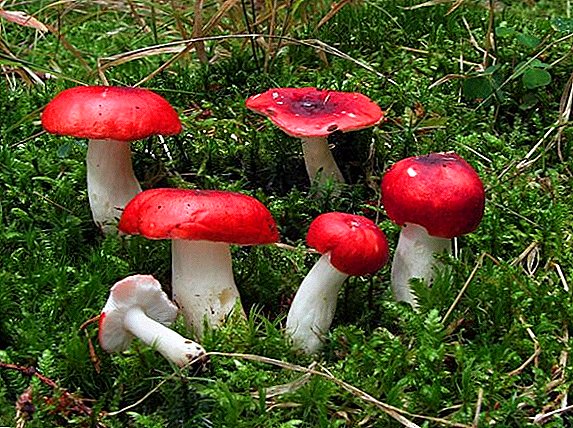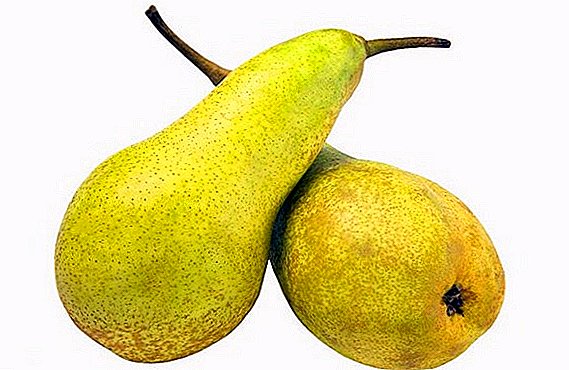 Lemon - plant of the genus Citrus. It probably appeared as a result of spontaneous hybridization, and for a long period of time it developed as a separate species, and only then it was domesticated and turned into a popular garden culture (in South or Southeast Asia). Today this plant is unknown in a wild-growing state. It is widely cultivated in many countries of the world. Of course, the reason for this is not its sour taste, but the use of lemon for the human body, which covers all the disadvantages. We have devoted this article to these useful properties and some shortcomings.
Lemon - plant of the genus Citrus. It probably appeared as a result of spontaneous hybridization, and for a long period of time it developed as a separate species, and only then it was domesticated and turned into a popular garden culture (in South or Southeast Asia). Today this plant is unknown in a wild-growing state. It is widely cultivated in many countries of the world. Of course, the reason for this is not its sour taste, but the use of lemon for the human body, which covers all the disadvantages. We have devoted this article to these useful properties and some shortcomings.
Did you know? The first mention of the lemon dates back to the XII century (India, Pakistan). Then he came to the territory of the Middle East, North Africa, Spain and Italy. Today, the leaders in the cultivation of these fruits are India and Mexico, and each of these countries accounts for about 16% of the world crop (approximately 14 million tons annually).
The chemical composition of lemon
 Benefit, like harm of lemons (sometimes it happens), is explained by their chemical composition. Lemon pulp is rich in a large amount of vitamins (PP, E, C, B1, B2, B5, B6, B9, A, flavonoids, beta Carotene), organic acids (malic, citric), sugar, pectic substances, phytoncides, galacturonic acid. It has micro (iron, copper, fluorine, zinc, manganese, molybdenum) and macronutrients (calcium, sodium, phosphorus, sulfur, magnesium, potassium, chlorine).
Benefit, like harm of lemons (sometimes it happens), is explained by their chemical composition. Lemon pulp is rich in a large amount of vitamins (PP, E, C, B1, B2, B5, B6, B9, A, flavonoids, beta Carotene), organic acids (malic, citric), sugar, pectic substances, phytoncides, galacturonic acid. It has micro (iron, copper, fluorine, zinc, manganese, molybdenum) and macronutrients (calcium, sodium, phosphorus, sulfur, magnesium, potassium, chlorine).
The seeds contain limonin and fatty oil (also present in leaves and branches). The main components of the oil are terpene, α-limonene, citral, geranyl acetate. This explains not only the benefits of lemon, but also its characteristic smell. The leaves are also rich in vitamin C, and the bark is a glycoside citronin.
Useful properties of lemon
Such a unique, valuable fruit, due to its composition has a lot of useful properties.
Did you know? Lemon tree bears fruit all year round and is capable of producing a crop of 225-270 kg / year. In the past, because of its extreme rarity, lemons were presented as gifts to kings, and the ladies of the Renaissance used juice as a means to redden the lips.
Lemon Fruit Benefits
 Lemon is a fruit whose beneficial properties also include an antiseptic effect. For example, in some African countries, when scorpion is cut, half a lemon is applied to a stung place, and the second half is simply sucked. Grated lemon peel, placed near a working person, increases its working capacity several times. Thanks to the pectin substances contained in the fruit, lemon is able to remove heavy metals from the body. In addition, lemon, like other members of the genus, is a good remedy for putrefactive processes, especially for the liver (the advantage is to remove and eliminate toxins that do not harm other body systems). Also in the composition of this fruit a lot of fiber, which promotes digestion, and fresh skin reduces the formation of intestinal gases.
Lemon is a fruit whose beneficial properties also include an antiseptic effect. For example, in some African countries, when scorpion is cut, half a lemon is applied to a stung place, and the second half is simply sucked. Grated lemon peel, placed near a working person, increases its working capacity several times. Thanks to the pectin substances contained in the fruit, lemon is able to remove heavy metals from the body. In addition, lemon, like other members of the genus, is a good remedy for putrefactive processes, especially for the liver (the advantage is to remove and eliminate toxins that do not harm other body systems). Also in the composition of this fruit a lot of fiber, which promotes digestion, and fresh skin reduces the formation of intestinal gases.
Lemon Juice Benefits
Lemon juice promotes psychological balance, improves brain activity, and thanks to organic potassium, it also supports the proper functioning of the cardiovascular system and kidneys, and citrine with vitamin C has a positive effect on metabolism, redox processes and increases the elasticity and strength of blood vessel walls. normalizing blood pressure. Since lemon juice promotes the active elimination of uric acid from the body, it must be part of the regular diet for people suffering from joint diseases, otherwise there will not be much benefit from rare or single consumption, although it will not bring harm.
How useful water with lemon
 It is believed that drinking daily water with lemon (on an empty stomach, 20 minutes before breakfast), you can strengthen the immune system, improve heart function and appearance of the skin, normalize digestive processes. Water with lemon is recommended to gargle with sore throat, and the oral cavity - with inflammation of the mucous membrane. It is useful to rinse your hair with this water in case of high fat content of the scalp, as it improves the functioning of the sebaceous glands, making hair silky and shiny.
It is believed that drinking daily water with lemon (on an empty stomach, 20 minutes before breakfast), you can strengthen the immune system, improve heart function and appearance of the skin, normalize digestive processes. Water with lemon is recommended to gargle with sore throat, and the oral cavity - with inflammation of the mucous membrane. It is useful to rinse your hair with this water in case of high fat content of the scalp, as it improves the functioning of the sebaceous glands, making hair silky and shiny.
Why is a lemon useful for men and women?
Both men and women can take advantage of the beneficial properties of this amazing fruit.
The beneficial properties of lemon for men
Answering the question: “What is a lemon useful for men?”, We begin, first of all, with its ability to support male power. In ancient times, lemon was used to prepare drugs for male infertility, since it was he who speeds up the movement of spermatozoa and improves the quality of sperm. Also sometimes used in the treatment of the prostate. Gels and lotions for shaving, in the composition of which there is a lemon, perfectly refresh the skin and protect it from irritation.
Important! Lemon can bring a lot of benefits, but try to use it properly and not overdo it. Excessive consumption of fruit can harm your body, because increased acidity will negatively affect the quality of sperm.
What is useful for women lemon
 Speaking about how a lemon is useful for a woman's body, you should remember the whole range of active substances contained in this product, because it combines everything you need to ensure the beauty and health of your hair and skin. As a natural antioxidant, lemon is able to cleanse the skin, eliminate acne, blackheads, give the skin elasticity. Fair-haired women should know that regularly using lemon juice when washing their hair can enhance the saturation of the hair color, give it a natural shine.
Speaking about how a lemon is useful for a woman's body, you should remember the whole range of active substances contained in this product, because it combines everything you need to ensure the beauty and health of your hair and skin. As a natural antioxidant, lemon is able to cleanse the skin, eliminate acne, blackheads, give the skin elasticity. Fair-haired women should know that regularly using lemon juice when washing their hair can enhance the saturation of the hair color, give it a natural shine.
Did you know? Everything about lemon, about its effects on the body (harm and benefits), was known by ancient healers. They used lemon to treat various female diseases. For example Avicenna, considered it a good remedy for toxemia during pregnancy.
Lemon application
Lemon is widely used in traditional medicine (as a therapeutic and prophylactic agent for hypovitaminosis, avitaminosis, rheumatism, as a medicine for scurvy, as an antidote for alkali poisoning, to improve the smell and taste of medicines), although they do not bypass the traditional medicine and cosmetology , perfumery, nutrition, and cooking.
In folk medicine
 Lemon is widely used in traditional medicine as a vitamin remedy, additional - for jaundice, edema, gout. Lemon with honey and butter treats infectious diseases, and tea with lemon is advised to drink for colds, fevers, thirst and respiratory diseases. Diphtheria raids in the throat should be lubricated with fruit juice, and as a remedy for nosebleeds, you should use a mixture of lemon juice, vinegar and alum. To get rid of corns, traditional medicine recommends 2-3 days before bedtime, steam out the leg and attach the rind of lemon with pulp to the corns. Lemon syrup is used as an anthelmintic.
Lemon is widely used in traditional medicine as a vitamin remedy, additional - for jaundice, edema, gout. Lemon with honey and butter treats infectious diseases, and tea with lemon is advised to drink for colds, fevers, thirst and respiratory diseases. Diphtheria raids in the throat should be lubricated with fruit juice, and as a remedy for nosebleeds, you should use a mixture of lemon juice, vinegar and alum. To get rid of corns, traditional medicine recommends 2-3 days before bedtime, steam out the leg and attach the rind of lemon with pulp to the corns. Lemon syrup is used as an anthelmintic.
In cosmetology
As already mentioned, lemon can be used for hair and face, but it will also bring benefits to teeth and nails, although with improper or excessive use, harm should also not be excluded. A decoction of lemons is used to get rid of dandruff by rinsing their hair once a week. Lemon juice is used to remove pigment spots and freckles, and it also tightens pores and relieves acne.
 The number of fine wrinkles can be reduced, and the appearance of new ones can be prevented by using a mixture of equal parts of lemon juice and olive oil (in the morning and before bedtime). The problem of rough skin on elbows, knees and heels can be solved by rubbing it with a piece of lemon for several minutes. To get rid of plaque, you can 2 times a week (no more) brush your teeth with the juice of green lemon and grapefruit. However, excessive use of lemon for these manipulations can cause undesirable consequences, such as damage to the tooth enamel.
The number of fine wrinkles can be reduced, and the appearance of new ones can be prevented by using a mixture of equal parts of lemon juice and olive oil (in the morning and before bedtime). The problem of rough skin on elbows, knees and heels can be solved by rubbing it with a piece of lemon for several minutes. To get rid of plaque, you can 2 times a week (no more) brush your teeth with the juice of green lemon and grapefruit. However, excessive use of lemon for these manipulations can cause undesirable consequences, such as damage to the tooth enamel.
To strengthen the nails, make them shine - wipe them with lemon peel. Occasionally you can even replace the deodorant with lemon juice, applying it to the skin after washing. However, moderation should also be observed here so as not to get irritated. Lemon juice can often be found in the compositions of shampoos, lotions, creams.
In nutrition
Many nutritionists believe lemon is an excellent means to normalize weight. It muffles hunger, improves digestion, contributes to the proper absorption of food and the rapid absorption of calcium, which is necessary for burning fat. Therefore, experts advise watering lemon or fish with lemon juice and sprinkling salads and soups with zest. Lemon essential oil is used for massage, aromatherapy, and is also added to slimming baths. Good reviews also received a lemon diet, which is repeated no earlier than a month break.
In cooking
 Lemons can be eaten fresh, but they are often used in the confectionery, alcoholic beverage industry or in the manufacture of soft drinks. Lemon juice is the main component of lemonade, but is often replaced with citric acid in the factory. Of course, in this case, it’s not at all necessary to talk about how it is useful, since it’s more likely to explain what such a “lemon” drink is harmful.
Lemons can be eaten fresh, but they are often used in the confectionery, alcoholic beverage industry or in the manufacture of soft drinks. Lemon juice is the main component of lemonade, but is often replaced with citric acid in the factory. Of course, in this case, it’s not at all necessary to talk about how it is useful, since it’s more likely to explain what such a “lemon” drink is harmful.
As a spice, lemon is added to various fruit salads, sweet dishes, pastries, sauces, fish, poultry, rice dishes. Lemon juice is used to improve the taste of many dishes, such as salads, cold dishes, fried fish; when cooking jam, sauces, syrups, creams, drinks. Lemon slices serve as a beautiful decoration of dishes.
Contraindications to eating lemon
Now let's see what a lemon can be harmful to the human body and to whom this fruit is contraindicated.
So:
- Lemon does not give to children up to three years and those who are allergic to citrus.
- It is not recommended for people with a stomach ulcer, acute nephritis, hepatitis, gastroenterocolitis.
- In any case, this fruit should be consumed in adequate quantities, otherwise you risk getting allergies, often in the form of a rash.
- Lemon juice on the skin increases the likelihood of sunburn, especially for people with light skin type.
- During pregnancy and lactation should not use lemons as a drug in large quantities.
- It is recommended to drink lemon juice through a straw, and after that - rinse your mouth with water, because in undiluted form, it can damage the tooth enamel.
- Fruits must be washed, as pathogens may be present on them.
Important! Lemon bones are poisonous.
 Lemon has excellent healing abilities, but you should not consider it a panacea for all diseases. Lemon can be both beneficial and harmful to the health of both men and women. Therefore, use it carefully, taking into account all possible negative qualities, and then this fruit will bring you only benefits.
Lemon has excellent healing abilities, but you should not consider it a panacea for all diseases. Lemon can be both beneficial and harmful to the health of both men and women. Therefore, use it carefully, taking into account all possible negative qualities, and then this fruit will bring you only benefits.












